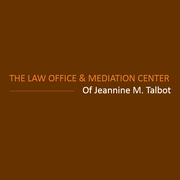FAQ About Dividing Property During a Divorce

Dividing property can be one of the most trying and contentious aspects of a divorce, even in the most amicable situations. While it’s best to have a lawyer help you navigate the complicated process, having a basic understanding of Connecticut property division laws will also make it easier. Below, review answers to some of the most frequently asked questions about this issue.
Common Questions About Divorce Property Division
What is an equitable distribution state?
Some states follow community property rules, which require a strict 50-50 split of all property acquired by a couple during their marriage. However, Connecticut follows equitable distribution laws. This means the court considers many factors when deciding how to divvy up assets, including the length of the marriage, child custody arrangements, each spouse’s earning potential, their financial contributions during the marriage, and their health. Equitable distribution intends to ensure assets are divided fairly among a couple, which may mean one party receives less or more than 50%.
What types of property get divided?
 During a divorce, your lawyer will help divide two types of shared property: real property and personal property. Real property refers to non-movable items, such as land and anything attached to the land, including marital homes, vacation houses, rental houses, commercial lots, and undeveloped acreage. Personal property consists of movable possessions, which is essentially everything else. Bank and retirement accounts, stocks and bonds, cars, furniture, and jewelry are all considered personal property.
During a divorce, your lawyer will help divide two types of shared property: real property and personal property. Real property refers to non-movable items, such as land and anything attached to the land, including marital homes, vacation houses, rental houses, commercial lots, and undeveloped acreage. Personal property consists of movable possessions, which is essentially everything else. Bank and retirement accounts, stocks and bonds, cars, furniture, and jewelry are all considered personal property.
Is any property exempt?
Not much is actually exempt from distribution. Generally, anything acquired prior to the marriage that has not appreciated in value remains with the party owning the asset.
Can spouses opt to divide property themselves?
While the court makes all decisions, a fair arrangement between you and your spouse will likely be accepted. It’s also important to note that once a lawyer files a petition for divorce in Connecticut, the law prohibits either spouses from selling, transferring, or otherwise disposing of shared property without the other’s consent.
For more information on property division during divorce, contact The Law Office and Mediation Center of Jeannine M. Talbot in Torrington, CT. With more than 20 years of experience, this seasoned lawyer will help guide you through the complicated legal process and ensure you receive the settlement you deserve. Visit her website to learn more about her services, and call (860) 482-9004 to schedule a consultation today.
About the Business
Have a question? Ask the experts!
Send your question

